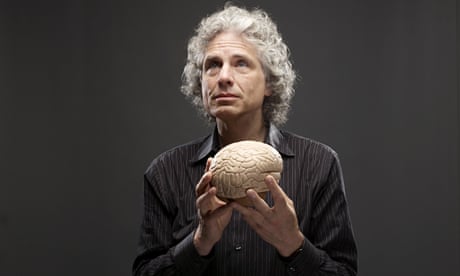REVIEW
24 May 2017
A new history of cultural big ideas looks to the East for solace
To create a less divisive world, Jeremy Lent's The Patterning Instinct wants to get rid of the Western split between animalistic urges and rational control

The revolution starts here: a Confucian temple in Shanghai
Olivier Aubert/Picturetank
By Pat Kane
AS THE daily turbulence of politics, economics, environmental change and religion rages around us, there is an understandable marketplace for books that look at the bigger picture. Jeremy Lent’s The Patterning Instinct does just that, joining the dots between points in history and culture, identifying echoes and consiliences across the natural and social sciences.

This is more than a scholastic exercise. Our planetary predicament demands the broadest and deepest perspectives, not just to enable masterful armchair contemplation, but also to guide our actions in the middle of what would otherwise be an enervating horror show.
The cover of Lent’s intellectual epic shows a line drawing of networks, the dots ostentatiously joined. No doubt this expresses the author’s fundamentalism, derived from his scientific and religious readings, about the power of connectedness.
But on the way to a somewhat familiar end point, Lent provides a useful and massively referenced road map of the most enduring structures of meaning in human history.
Humanity’s first world-encompassing idea, says Lent, was the hunter-gatherer belief that “everything is connected”. There followed an agricultural era during which humanity lived under the “hierarchy of the gods”.
He then charts what he calls “the divergence”. Lent’s shorthand for this pattern is “split cosmos, split human”: the assumption that our physical reality, personal or objective, can be controlled by transcendent powers. Whether we call those powers “divine” or “rational” is, to Lent, neither here nor there. The two developed in lockstep: you couldn’t have conceived one without the other.
Articulated first by the philosophers of Ancient Greece, this “Western pattern” of meaning gathered force under the rise of Christianity and the innovations of the Enlightenment and continues to hold sway under today’s scientific industrialism.
“This idea could produce a split humanity, one species enhanced and exploring, the other barely surviving”
Lent traces his splitting thesis all the way to the thrumming fortresses of Silicon Valley. Here, Plato’s fantasy – a rational soul subjecting the animalistic body to its will – is not just a moral compass, it’s become techno-scientific mission.
Are you extending our cognitive abilities by creating devices that mimic and mesh with our thinking? Are you influencing people’s emotions through mood-altering drugs? Are you engineering our bodies to the optimum with gene editing? Then you are in the grip of an ancient idea: that pure rationality stands sovereign over the biological world.
This idea has the potential, already half-realised, Lent says, to produce a split humanity, “one species, genetically and technologically enhanced, exploring entirely new ways of being human; the other species, genetically akin to us, barely surviving within its collapsed infrastructure.”
Similar to Yuval Noah Harari’s recent, and equally expansive, Homo Deus, Lent’s book seeks some perspective on our modern juggernaut of radical innovation and global polarisation. To do so, it reaches towards Asian wisdom traditions – an “Eastern pattern” that Lent calls “the harmonic web of life”.
But while Harari’s no-self Buddhism comes close to exulting in the way humankind will be overtaken by intelligent algorithms, Lent finds a place for connecting, meaning-seeking humans in this complex future.
To carve out this space for ourselves, Lent says we must recast the deep metaphors structuring our attitudes to nature and other humans.
Neo-Confucianism is the candidate that Lent favours to lead this metaphorical revolution. Its core concept is an understanding of the universe as the interrelation of qi (spoken as “chi”) and li. Qi is the raw material of the universe – but liis “the ever-moving, ever-present set of patterns that flow through everything in nature and in all our perceptions of the world, including our consciousness”.
Like his mentor Fritjof Capra, who provides an introduction for the book, Lent seeks corroboration for this spiritual insight in what were once called the “new”, non-deterministic sciences – the study of complex adaptive systems in physics and biology, which find curious analogues in certain branches of mathematics.
Lent shows how the tenets of Neo-Confucian thought are homologous with maths, neuroscience and climatology, particularly when those disciplines identify “a complex of dynamical systems that remain valid across the entire natural world, from systems as vast as global climate to as small as a living cell”.
Like Capra, Lent wants to fuse spiritual tradition and the “new” sciences in service of a less rapacious and divisive world. If we could grasp what Lent calls elsewhere “liology”, we would attribute our ultimate sources of value not to “a transcendent realm”, or to our “moral rationality”, but to “humanity’s intrinsic connection with the natural world”.
There’s an obvious, real-world refutation available, of course. It’s not hard to find a regime that loudly deploys Confucian values in a modern setting. But does China, which recorded its highest ever figures for coal-fired electricity this April, provide the best exemplar? Lent himself delicately “refrains from making direct inferences regarding modern China” in his study of Neo-Confucianism. He should entertain a little more hope. Although China is producing more energy from coal in absolute terms, the percentage of total energy provided by coal is dropping.
Since 2007, Beijing elites have been hyping East Asia as a land mass uniquely placed to bring about an “ecological civilisation”, underpinned by the Confucian belief in harmony with nature. Meanwhile the administrations of US president Donald Trump and UK prime minister Theresa May have each rubbished climate change action and research. They have handed China a golden opportunity: to make good on its soft-power rhetoric and create a sustainable model that, sooner or later, the rest of the world will have to emulate.
Lent uses what he calls “cognitive history” and “archaeology of the mind” to show how such massive shifts in underlying world view can happen, and they involve an evolutionary account of the brain. Again like Harari, Lent dates the advent of our capacity for advanced cognition to a point about 70,000 years ago, when our prefrontal cortex began to expand.
Lent describes the “executive function” of the prefrontal cortex well. “It mediates our ability to plan, conceptualise, symbolise, make rules, and impose meaning on things. It controls our physiological drives and turns our basic feelings into complex emotions. It enables us to be aware of ourselves and others as separate beings, and to turn the past and the future into one narrative.” This is the locus of the “patterning instinct”.
In many of the neurology-informed history epics, authors are often studiedly neutral about the raw mental ability of humans to forge new paradigms. Few of them dare to connect our cognitive flexibility to any necessary idea of progress, or human flourishing. This is perhaps understandable given what’s involved is often a survey of historical carnage. Lent himself is unsparing in his descriptions of the cruelty and brutality meted out by righteous monotheists and dualists, their meaning-patterns justifying colonialism and empire.
“Cultures shape values, and those values shape history. Our values will shape our future”
Given all this, you have to admire the way Lent sticks his neck out on behalf of Neo-Confucianism. He goes so far as to propose that its concept of “heart-mind”, which seeks to integrate emotion and reason, is analogous to the prefrontal cortex when it functions at its best. And he has a point, citing research that shows that a healthy prefrontal cortex is not about “repressing or overriding emotional states”, but about “integrating them into appropriate decisions and actions… our cognition takes place not in the brain but in the felt sensation of the entire body.”
The Patterning Instinct, oblivious to the science-deniers currently occupying high executive office, ends with a statement of simple confidence: “Cultures shape values, and those values shape history. By the same token, our values will shape our future.” One way to equip yourself for this heroic task will be to read this enormous, learned, yet garrulous and helpful book.
The Patterning Instinct: A cultural history of humanity’s search for meaning
Jeremy Lent
Prometheus Books








